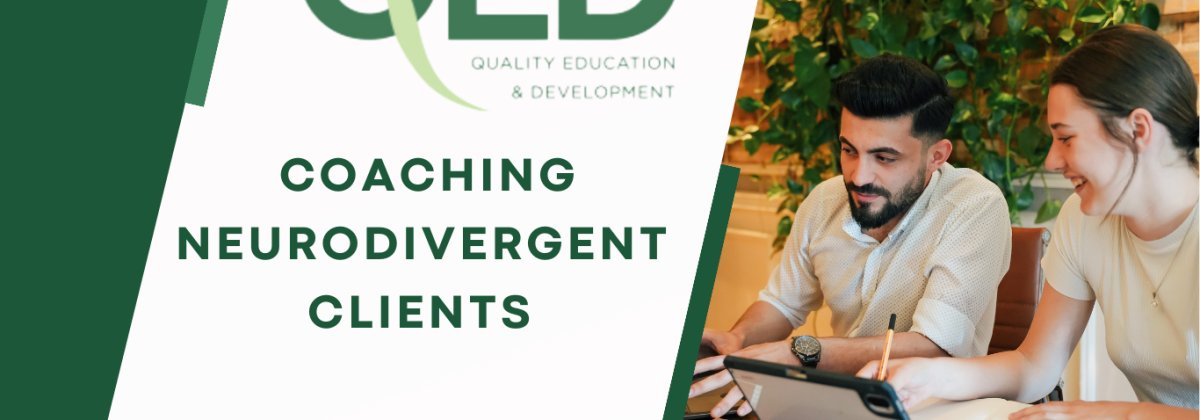Set YOUR Potential Free

Coaching Neurodivergent Clients
With more and more coaches working with clients who are Neurodivergent, this topic has become a key area for Coaching Supervision discussions and CPD requests.
Coaching neurodivergent clients requires a thoughtful and individualised approach, as neurodivergent individuals may have unique strengths, challenges, and communication styles. Being led by the client, who knows how they work best, will always be your most helpful guide.
Here are some tips to consider when coaching neurodivergent clients:
Understand Neurodiversity:
Educate yourself about neurodiversity, which is the concept that neurological differences, such as autism, ADHD, dyslexia, and others, are natural variations of the human brain. Recognise that neurodivergent individuals have different perspectives and abilities.
Tailor Your Approach:
Recognise that coaching approaches need to be tailored to the individual’s preferences and needs. Some may prefer structured sessions, while others may thrive in a more flexible environment.
Clear Communication:
Be clear and explicit in your communication. Avoid using ambiguous language and be specific about expectations and goals. Visual aids and written instructions can be helpful.
Build Trust:
Establish a trusting relationship by demonstrating empathy, active listening, and understanding. Create a safe space where the client feels comfortable expressing themselves.
Sensory Considerations:
Be mindful of sensory sensitivities that neurodivergent individuals may have. Consider factors such as lighting, noise levels, and seating arrangements to create a comfortable coaching environment.
Flexibility:
Be open to flexibility in coaching methods and scheduling. Some neurodivergent clients may benefit from breaks or adjustments in the coaching process, chunking sessions down can work well.
Strengths-Based Approach:
Focus on the individual’s strengths and abilities rather than solely on challenges. Encourage and celebrate their achievements and help them leverage their strengths to overcome obstacles.
Visual Tools:
Incorporate visual tools, charts, or diagrams to aid in understanding and processing information. Visual aids can provide additional support for neurodivergent individuals who may learn better through visual cues.
Self-Awareness:
Encourage self-awareness and self-advocacy. Help clients identify their strengths, challenges, and coping mechanisms. This can empower them to navigate challenges independently.
Collaborate with Support Systems:
If appropriate, involve support systems, such as family members, educators, or therapists, in the coaching process. Collaborate to create a holistic and supportive approach.
Feedback and Check-Ins:
Get regular feedback from your client, this will enable you to adjust to their needs and to be clear on what is working well for them. Provide clear and constructive feedback, and regularly check in with the client to assess their progress, goals, and overall well-being.
Remember that each neurodivergent individual is unique. Flexibility, patience, and a genuine willingness to understand and support the individual are key elements in coaching neurodivergent clients effectively.
Information on our ILM levels for you to enhance your coaching skills, please find full info here and don’t hesitate to reach out to us if you have any queries.

